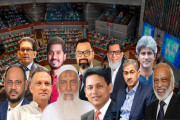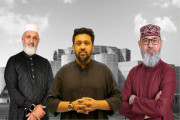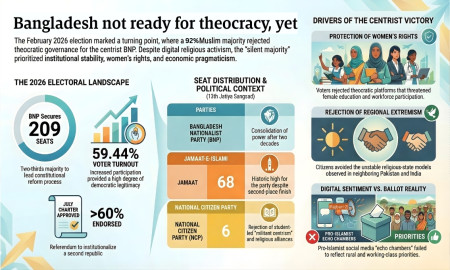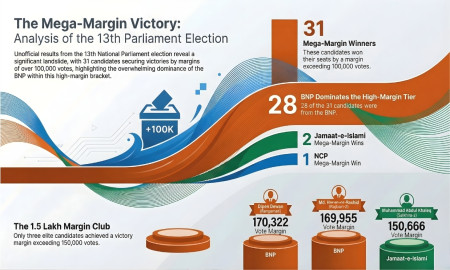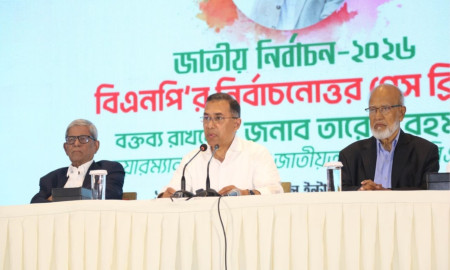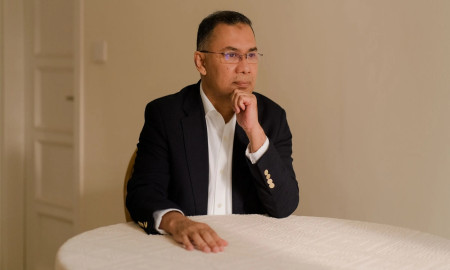NSU and MILNetBD Host Global MIL Week 2025 Webinar on Youth, Ethics, and AI Literacy
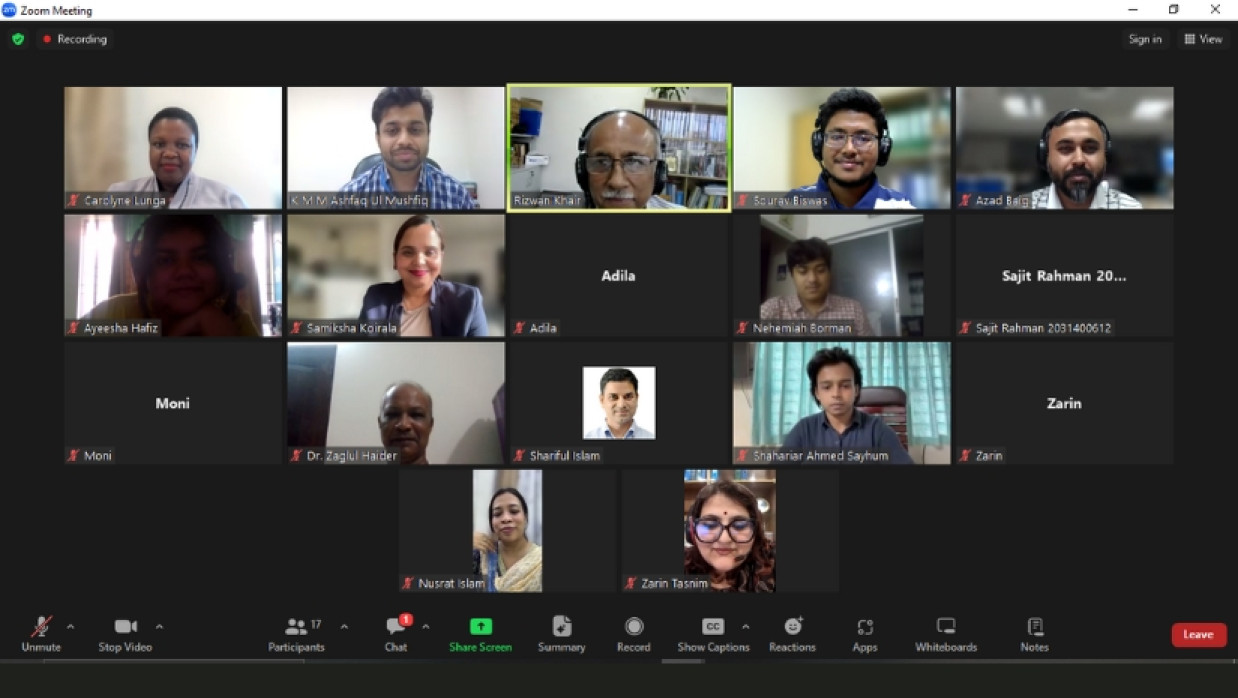
The Media, Communication, and Journalism (MCJ) Program at North South University (NSU), in collaboration with MILNetBD, hosted a thought-provoking webinar titled "Prompt to Power: Youth, Ethics, and Media & Information Literacy (MIL) in AI Platforms" today to mark UNESCO’s Global Media and Information Literacy (MIL) Week 2025, celebrated worldwide under the theme "Minds Over AI – MIL in Digital Spaces."
Moderated by K. M. M. Ashfaq Ul Mushfiq, part-time lecturer at MCJ, NSU, the event drew educators, journalists, researchers, and students to explore how artificial intelligence is reshaping communication, education, and civic engagement, and the role of MIL in equipping young people to navigate these shifts critically and ethically.
Professor Abdur Rob Khan, NSU's Treasurer and Pro-Vice Chancellor (In-Charge), opened with a welcome, stressing ethical digital engagement. “Youth are at the heart of AI-mediated communication, yet many lack the critical literacy to combat bias, misinformation, and algorithmic manipulation,” he said. “The real question isn’t what AI can do, but how we can harness it responsibly, creatively, and inclusively for societal good.”
Dr. Md. Rizwanul Islam, Dean of the School of Humanities and Social Sciences (SHSS), added that “institutions and legal systems must adapt to ensure fairness, access, and accountability in intelligent machines.”
Nehemiah Borman, an MCJ student and NSU MILNetBD Student Ambassador, set the tone with a presentation on "Students & Digital Ethics," sharing practical examples of responsible digital navigation.
The keynote was delivered by Dr. Carolyne Lunga, Senior Lecturer in Journalism and Media Studies at City St George’s, University of London, and Fellow of the Advance HE Academy (UK). Discussing AI’s opportunities and risks, she noted, “The AI wave offers young people unprecedented power to shape their present and future. Yet it’s a double-edged sword; unchecked, it can widen inequalities.” She commended NSU’s MCJ program for fostering critical thinking.
A dynamic panel followed, featuring Dr. Samiksha Koirala and Dr. Adila Majeed (NSU), Azad Baig (Digital Growth Editor, The Daily Star), and Rumana Rahman (Senior Lecturer, East West University and MILNetBD representative). Dr. Koirala emphasized, “Media literacy is inseparable from power and accountability. AI isn’t neutral; it mirrors our biases. Youth participation must be central.” Baig urged, “Treat AI as an assistant, not a replacement. Your creativity is your superpower.” Dr. Majeed stressed policy: “Media and government must regulate AI for transparency.” Rahman highlighted journalism’s role: “In the age of deepfakes, journalists are truth guardians. MIL empowers youth to verify and turn AI into a tool, not a trap.”
Zarin Tasnim, MCJ lecturer and NSU MILNetBD Faculty Ambassador, reflected, “Dr. Lunga, Dr. Koirala, Dr. Majeed, and Ms. Rahman’s insights made today’s dialogue truly global. NSU MCJ will partner with MILNetBD and UNESCO to advance MIL, centering ethics, inclusion, and youth empowerment.”
Dr. Rizwan Khair, Chair of Political Science and Sociology, concluded: “AI summarizes information, but humans decide. Think of it as a sandwich model: human-AI-human. AI assists, but humans proceed.”
The webinar ended with a vote of thanks, reinforcing AI’s role as a tool for empowerment when guided by ethical MIL.

